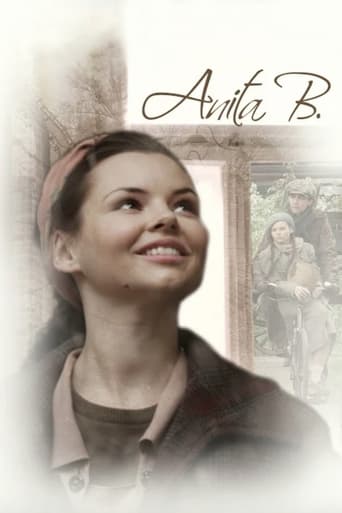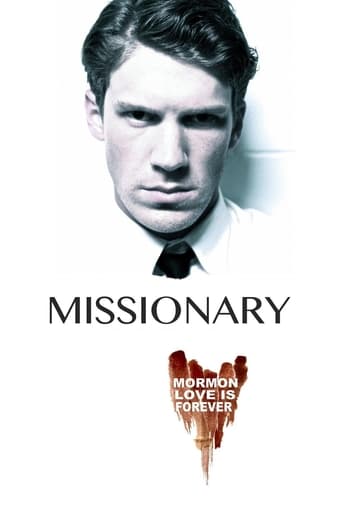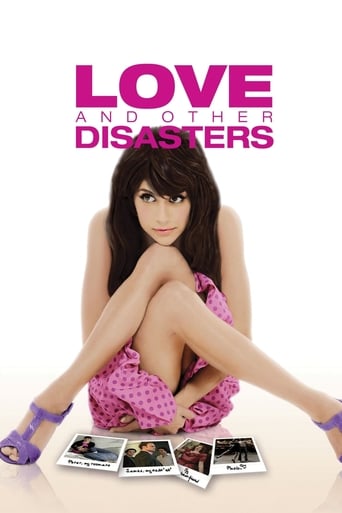

Anita B. (2015)
After World War II, Anita, a young survivor of Auschwitz, becomes involved in an intense and passionate affair that almost shatters her until she gains the strength to start a new life.
Watch Trailer
Cast
Similar titles
Reviews
Powerful
Overrated and overhyped
Great Film overall
There are better movies of two hours length. I loved the actress'performance.
In the film, Anita is taken to live with her Aunt Monica and her family in Czechoslovakia where she spends her days trapped inside taking care of their son Robbie and telling him of her time in Auschwitz because no one else will listen. She soon falls in love with Eli and becomes pregnant, but when he pressures her to abort the child, she escapes to Jerusalem to start a new life for herself.The beauty of Anita B. derives from the remarkable detail brought to a simple and truthful storyline through incredible acting. Though most of the film simply shows Anita working through her daily routine, her emotions are worn for everyone to see and make her an extremely sympathetic character. Powell beautifully portrays the innocence of a young woman confused by her station in life and longing for some affection and security. Her superb acting is accompanied by that of Sheehan, who plays Eli. Throughout the story, it is difficult to make a decision about his character. At times he is lovable and sweet to Anita and in others he is so vile that it is impossible to understand how she could love him. One of the most heart wrenching moments in the film is when he tells Anita that the last thing he wants is to bring a child into that world. This complex moment truly shows the three dimensionality of his character. The death of his fiancée has destroyed his faith in the world and he cannot fathom knowingly bringing a child into the harsh society in which he is forced to live. The film is also incredibly well written and executed cinematically. The story clearly demonstrates that everyone at that time was effected by the Holocaust in some way or another and that there was no good way to deal with the aftermath of all that pain. Anita takes comfort in describing her experiences to Robbie as a sort of therapy, but Monica plagued with the guilt of a survivor, refuses to acknowledge that anything had even happened. She copes by blocking out the past instead of remembering and learning from it. Then there is David, Anita's confidante who follows the path of many young Jewish people at the time and decides to escape the death of his parents by going to Jerusalem, and of course Eli who has taken to pessimism and women in order to numb the pain of it all. Each character is faced with the challenge of trying to move on and the difficulty of that task is executed masterfully throughout the film. The film also transports the viewer into this time period through cinematic choices made to give it the look of a much older film. The sepia quality used not only ages the movie, but also creates an essence of darkness and despair that suits the time period.
Directed by Roberto Faenza, Anita B. is an Italian film loosely based on the 2009 autobiographic novel "Quanta stella c'è nel cielo" by Edith Bruck. Anita B. paints a beautiful portrait of a young, orphaned Auschwitz survivor as she attempts to adjust to life in post-war Cszeckoslovaki with her Aunt Monika, Monika's husband Aron, their son Robby, and Aron's brother Eli. While Anita grieves the death of her parents, she must also cope with her aunt's resentment, a tumultuous love affair with Eli, and her struggle to find an individual to confide in. When Monika and Eli demand that Anita leave Auschwitz behind, Anita's only confidante is Monika's baby, Robby. Anita finds brief stability in a relationship, but when Anita befriends a young Jewish man named David and her relationship with Eli becomes unhealthy, Anita once must again escape a complex and stifling situation to pursue a more promising life.While Faenza's film succeeds in several areas, not the least of which is the film's beautiful cinematography, the film's greatest strength lies in the development of its characters. Particularly compelling is the relationship between Anita and Eli, played by Eline Powell and Robert Sheehan respectively. Their blossoming affair delves into uncertainty as the upbeat and charming Eli succumbs to his anger. The complexity of Eli's character development is significant in that Faenza is careful not to portray any one villain; in other words, Eli himself is a victim of the war and of the Holocaust, he too carrying his own burden and traumas. Thus, Powell and Sheehan, whose performances are equally impressive, capture the spirit of young survivors each riddled with their own anxieties, memories, and troubles: a combination of which proves to be unhealthy for both parties, especially Anita. This complexity likewise manifests itself in the character of Monika, Anita's aunt. Often cold and dismissive, Monika's own struggle to cope with her brother's death results in a well-intentioned yet notably strained relationship with her niece. Faenza not only captures the nuances of complex relationships, but he also portrays the characters struggling with their own identities. In particular, Anita must suppress her identity as a Jewish Hungarian in order to survive; in fact, most of Faenza's characters must grapple with what it means to be Jewish in this new, still hostile and anti Semitic post-Holocaust environment.Faenza's approach to character development more than pays off; this film in its entirety is cinematographically breathtaking, emotionally compelling, sincere, and hopeful in a way that does not feel cliché. The film captures the complexities, nuances, and hardships that must have accompanied survivors of the Holocaust. Though Faenza's characters, especially Anita, are faced with adversity even after the war's conclusion, they tackle them with a raw honesty that is both heartbreaking and hopeful. Thus, the film does less to capture to the horror and atrocities of the 1940's, and does more to pay homage to those who remarkably lived and endured.
Anita B. is a film based on the true story Quanta stella c'è nel cielo by Edith Bruck about a young Holocaust survivor's life just following the end of World War II. The protagonist, Anita, goes to live with her Aunt Monika, Monika's husband, Aron, their son, and Aron's brother, Eli, after she is freed from Auschwitz. She is quickly thrust into a passionate love affair with Eli, which quickly turns unpredictable, unreliable, and unhealthy. Once she gets her papers, she is desperate to find and make connections with the people in her life- coworkers, family, neighbors. She slowly begins realizing that Eli is not the man with whom she fell in love, and must make difficult and life-changing decisions. Anita is constantly faced with adversity in almost every arena of her life, and emerges with strength and optimism toward her future in this story of survival and triumph.Anita B. is a gorgeous, thought-provoking, intense, and truly extraordinary film. It embodies many of the difficulties faced by Holocaust survivors after World War II, a theme not many films have addressed. The cinematography, costuming, and scenery were all beautiful, making the film an absolute treat to watch. The acting, particularly of Eline Powell (Anita) and Robert Sheehan (Eli), was convincing, honest, and carefully thought-out. The characters were extremely complex, and the character of Eli specifically stood out to me as intriguing and multi-faceted. The film portrays Eli in all of his varying states and constantly presents him as a complex character. Sheehan was cast perfectly as Eli, and was able to embody everything that the character represented in the film. From the beginning, he is portrayed as funny, sweet, and caring. He charms both Anita and the audience, but the pain he carries deep within him slowly starts to show, subtly at first and then more obviously as the film progresses. You fall in love with him as Anita does, and then you start questioning his integrity when you see how he sometimes treats her, until you realize what he's going through and how he suppresses his agonizing emotions. You then begin feeling sorry for him because neither you nor Anita can fully blame him for his actions; as she says to him toward the end of the film, "it's not your fault, it's just the way you are." In this sense especially, the film encourages us to identify with Anita and allows us to feel what she feels in any given moment. Eli could easily have been made out to be the "villain" of the story, but we are shown that he is extremely complex and might not be as bad of a guy as one may think. I love that the story does not have a true villain, and that it focuses on Anita and her journey to find a home and herself in this new world of hers. The film leaves you feeling optimistic and proud of Anita for finally being truly freed.
I found Anita B. to be a very compelling movie. It deviated from the normal Holocaust narrative, choosing to focus on the survivors and those who did not want to remember. It portrayed the complexities and diversity in the way that victims deal with grief and trauma. It showed those who choose to forget and those who fought to remember. By choosing to not focus on the horrors of what actually happened in Auschwitz the movie depicts the unsettling idea that those who survived were not necessarily free. Being Jewish is still not something Monika is proud of. Surviving is not something Monika is proud of instead she is ashamed. This showing how surviving the Holocaust is just one small piece to an individual's recovery. There is so much grief and guilt that individuals dealt with because they survived while the people they loved were killed. Another aspect I found intriguing about the film was how Anita's caring for Rob foreshadowed her future of motherhood. I think that the relationship she builds with Roby throughout the film is important because it proves to the viewer, and to Anita herself, that she can handle motherhood. This is important because it also highlights her growing confidence and independence. Her pregnancy becomes a symbol of the future and the possibilities of the future. I think an interesting line in the film is when Eli says that he does not want to bring a child into this world, implying that this world is too evil for a child to have to suffer through. However, I think that Anita's child symbolizes something completely different: that another generation will come and that this generation won't know the pains of the Holocaust the way Anita does. Her child symbolizes a hope for the future and the possibility of a better future for all persons. The movie ends on a hopeful note. Anita sets out on a journey by herself, without a man. She has grown into the woman she wants to be and she has taken charge of her life. She is no longer afraid.









